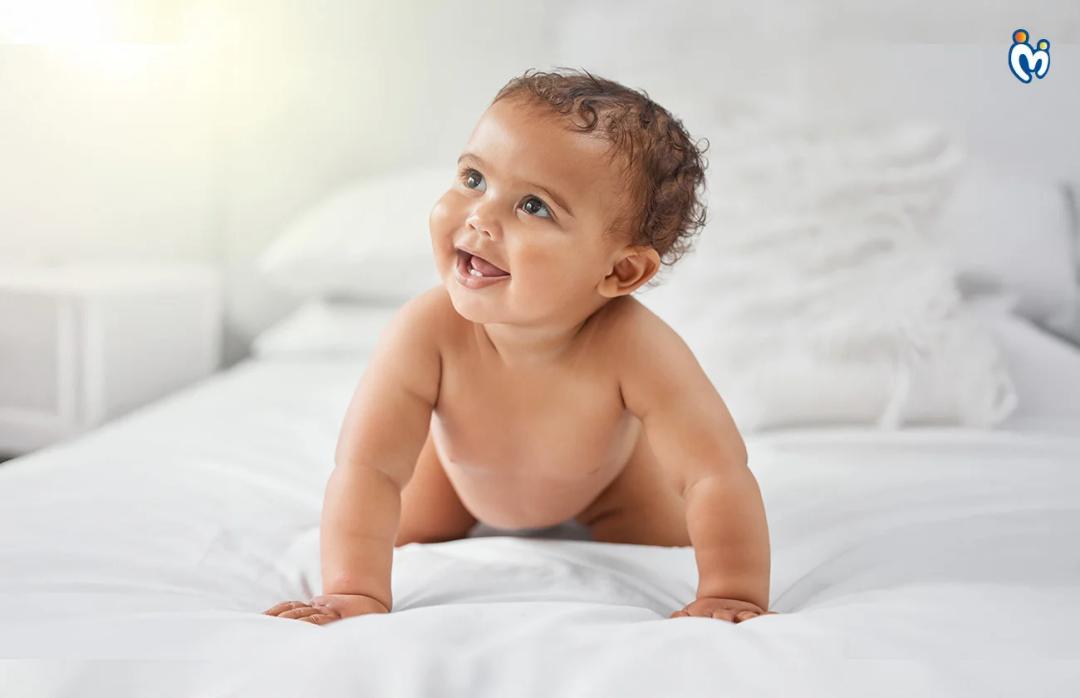The monsoon is undoubtedly one of the most cherished seasons, giving a welcome breath of cold air after a scorching summer. The pitter-patter of raindrops against the window is a joy to hear!
But as the rainy season approaches, the air within the house remains damp, resulting in various fungal and bacterial growths. It does not imply that you must live in fear or paranoia throughout the monsoon season! You and your little one may cruise through this season, better and happier than ever, with a little rational thinking and our top advice for baby care in the monsoon!
And here are seven guidelines that you should follow for extra care.
1) Make sure the baby is dry and clean
During the monsoon season, you never know how the weather will change dramatically. Because the temperature might be humid, it is critical to keep the newborn dry and clean. If you are going out, keep the baby wipes handy. Humidity can encourage the growth of bacteria, which can lead to infection in infants. So, give your young one a good bath and then dress them in loose-fitting clothes. If the baby is sweating, use MamyPoko Wipes from time to time to soothe the baby's skin.
Remember to keep an eye out for any fungal infections beneath the baby's arms, neck, and diaper area.
2) Continue to nurse your child
Breastfeeding provides unrivalled nutrients and medicine to a newborn. It is also crucial to keep a baby under six months hydrated because they do not have access to water or other beverages. Therefore they nurse frequently. Breast milk also boosts a baby's immunity by passing antibodies from the mother to the child.
3) Change diapers and nappies regularly
During the rainy season, the baby needs special care. So, it is essential to change diapers regularly. During the monsoons, the increased humidity can cause moisture to be trapped in the nappy area, causing rashes and infection. That's why you need to make sure you use baby care wipes to clean every time you change diapers.
4) Use no Rash diapers
Allow the baby skin to breathe by using a no rash diaper. If your baby is a newborn or premature, then use newborn diapers or premature baby diapers, respectively. Quick-dry sheets are also used to protect the mattress and other surfaces. Use MamyPoko Pants extra absorb diapers as they are leakage free and prevent dampness which is the leading cause of a rash.
5) Keep the infant safe from mosquitoes
The rainy season also brings a lot of mosquitoes. Therefore it's crucial to keep your kid safe from diseases. To avoid mosquito breeding, make sure there is no stagnant water in and around your home.
Keep the baby dressed in full-length, loose-fitting clothing. Baby mosquito repellents, such as patches, can also be used on clothing rather than directly on the baby's fragile skin.
6) Keep your house tidy
Germs and filth are the significant causes of illness in newborns, and the risk of water-borne infections increases dramatically during the monsoon season. Use disinfection treatments with active natural components to clean the flooring.
Maintain your indoor drainage system, as well as your garden area, bathrooms, and roof, to avoid mosquito breeding in damp areas. Wash your hands repeatedly and clean the baby's hands with the baby cleaning wipes—brush debris from furniture, carpets, and the sofa with a vacuum cleaner. Before the rainy season begins, have a pest control treatment performed.
7) Boiled water is a necessity
The baby has to be adequately hydrated, but don't forget to boil it first before cooling it. Allow the heated water to cool before using it to prepare solid meals for your baby. If your infant is still on formula, prepare it with this filtered water. Feed your baby liquids and pulp made from cherries, lychee, Jamun, peaches, and plums. Whole eggs, soya, and pulses are good sources of protein.
Follow these procedures to allow your infant to enjoy the rainy season.
FAQ's
Q. Why is baby care more important during the monsoon?
Ans.Monsoon brings high humidity, dampness, and increased risk of bacterial and fungal infections. Babies have delicate skin and weaker immunity, making them more vulnerable to rashes, infections, and illnesses. With proper hygiene, clean surroundings, and healthy feeding practices, you can protect your little one and ensure a safe, happy season.
Q. How can I keep my baby dry and comfortable in humid weather?
Ans.During monsoon, keep your baby clean and dry with regular baths and soft, breathable clothing. Always carry gentle baby wipes to remove sweat or dirt. Check skin folds under the neck, arms, and diaper area for fungal infections. Dry the baby properly after baths and avoid heavy or synthetic clothes.
Q. Why is breastfeeding important for babies in the monsoon season?
Ans.Breastfeeding is essential as it provides vital nutrients, antibodies, and hydration to the baby. It strengthens immunity, protecting against seasonal infections. Since babies under six months cannot drink water, breast milk keeps them hydrated. Frequent feeding ensures comfort, reduces illness risks, and helps babies fight off monsoon-related bacterial and viral threats.
Q. How often should I change my baby’s diapers in the rainy season?
Ans.Increased humidity during monsoon can trap moisture, leading to diaper rashes and fungal infections. Change diapers frequently and clean the baby’s skin thoroughly with baby wipes each time. Allow some diaper-free time daily for air circulation. Using rash-free diapers also helps prevent discomfort while keeping the baby clean and dry.
Q. Which diapers are best for babies during monsoon?
Ans.Choose rash-free, highly absorbent diapers that allow the baby’s skin to breathe. For newborns or premature babies, select specially designed diapers for sensitive skin. MamyPoko Pants extra absorb diapers are leakage-free, keeping babies dry for longer. Pairing diapers with quick-dry sheets also prevents dampness, protecting your baby from skin irritations and infections.
Q. How do I protect my baby from mosquito bites during monsoon?
Ans.Mosquitoes multiply in stagnant water during rains, posing health risks like dengue and malaria. Dress your baby in loose, full-length clothes to reduce skin exposure. Use baby-safe mosquito repellent patches on clothing, never directly on skin. Keep your home free from stagnant water and use nets or screens to block mosquitoes.
Q. Why is maintaining home cleanliness crucial for baby health in monsoon?
Ans.A damp home can attract germs, mold, and mosquitoes, increasing the risk of infections for babies. Clean and disinfect floors with safe solutions, vacuum carpets and furniture, and maintain drainage systems. Regular pest control helps minimize risks. Also, wash your hands frequently and keep your baby’s hands clean with baby wipes.
Q. Should I boil water before giving it to my baby in monsoon?
Ans.Yes, always boil water during the monsoon to eliminate germs and prevent waterborne infections. Cool boiled water before using it for formula preparation, cooking baby food, or feeding. Even fruits, juices, or pulses should be prepared with boiled water. This ensures your baby stays healthy and properly hydrated during rains.
Q. What foods are safe and healthy for babies in the rainy season?
Ans.Monsoon foods for babies should be fresh, well-cooked, and hygienically prepared. Offer boiled and mashed seasonal fruits like cherries, plums, and lychee. Protein-rich foods such as eggs, pulses, and soya are also beneficial. Avoid raw or street food, and always use boiled or filtered water while preparing baby meals.
Q. How can I ensure my baby enjoys the rainy season safely?
Ans.To make monsoon safe and enjoyable, keep your baby dry, change diapers often, protect against mosquitoes, and maintain home hygiene. Breastfeed frequently and offer nutritious, germ-free foods. Use baby wipes for quick clean-ups and rash-free diapers for comfort. With these precautions, your little one can enjoy the season happily.
















